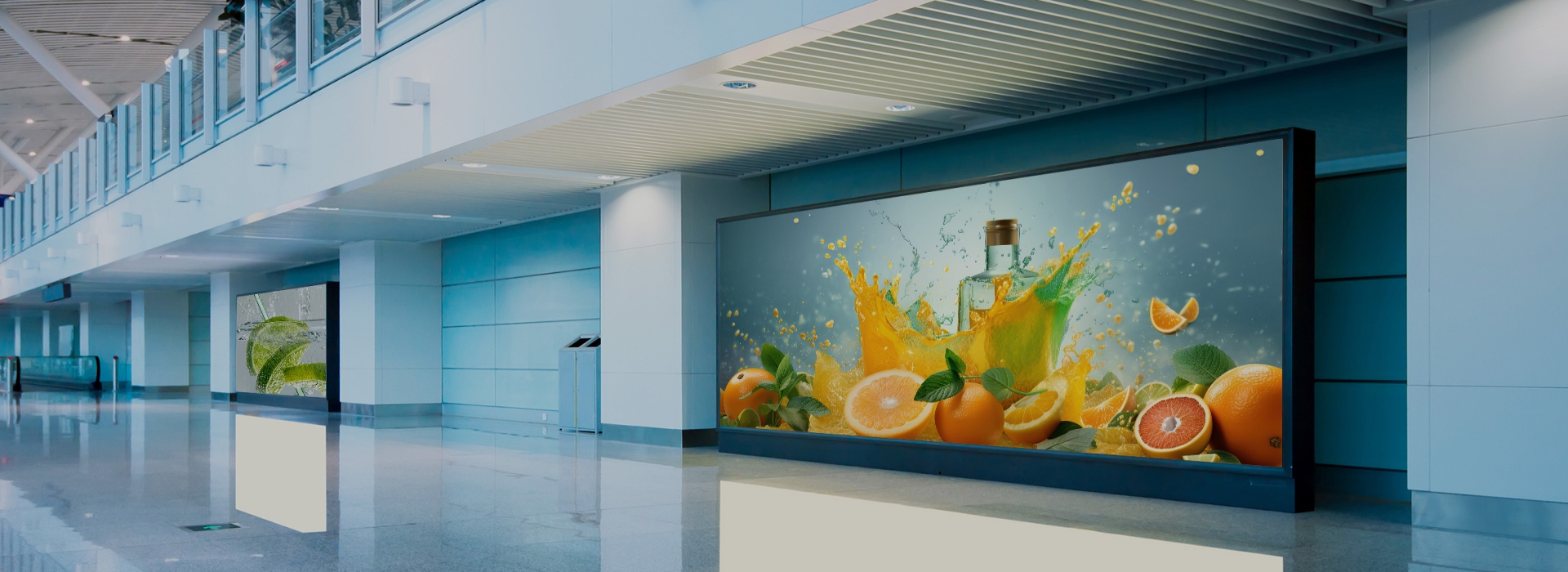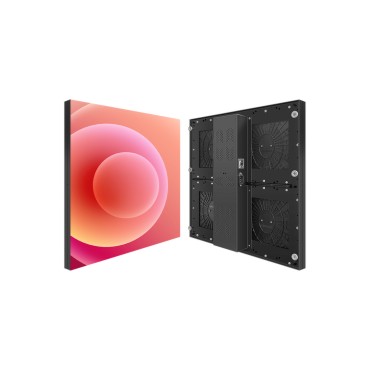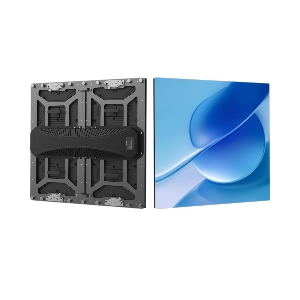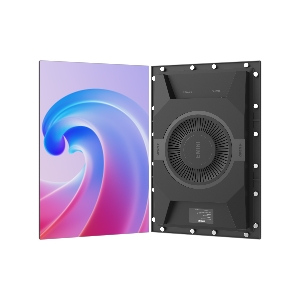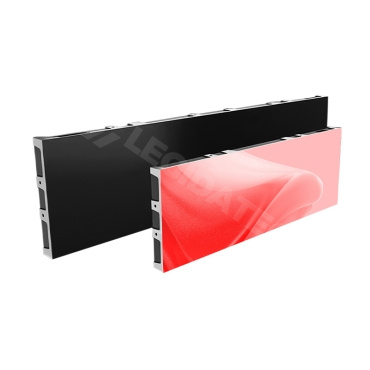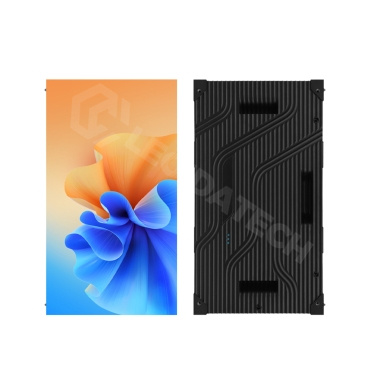Indoor LED Display
Indoor LED displays have high resolution and seamless design to deliver superior visual effects in any indoor environment.
LEGIDATECH LED offers a full range of indoor fixed LED display products for events, stages, stores, television studios, meeting rooms, professional AV installations, churches and other venues. LED display for church improves the sense of technology in the church
. You can choose the right series according to the needs of your rental application. Indoor fixed LED display pixel pitch range from P1.953mm to P5mm.
p2.6/2.9/3.9 indoor led display. High refresh rate and configuration,thin and light cabinet,.It only takes 3 hours to install 100 square meters
P1.2/P.5/P1.8 /P2/P2.5 /P3/P4/P5 indoor led screen. Screen size 640*480mm, total front maintenance, more led screen size and shape options.
P2.6/2.9/3.9 indoor led display screen. Ultra-thin and light indoor led display, saving transportation costs, easy installation, 4K display
P1.2/P.5/P1.8 /P2/P2.5 indoor led screen. Installed by 6 strong magnets, no need to screw any more. 480*320mm, more screen size options
Today I will introduce some of the most useful points about indoor LED display.
For those who want to buy a screen for advertising and entertainment, indoor LED displays are the first choice.
However, many people don’t know how to choose a good product and get it at a reasonable price.
In this formal guide, I will show you some important things to consider before making an investment decision, such as the basic definition, trends, and pricing of indoor LED displays!
1.what is an indoor led screen?
1.1 Difference between indoor LED display and LCD display
1.2 Difference between indoor LED display and outdoor LED display
1.3 What are the specifications of indoor LED display
2.What are the advantages and disadvantages of indoor led screen?
3.how to choose indoor LED display
4.The development process and application scenario of indoor fixed LED display
5.Installation of indoor led display
6.What are the control methods of indoor LED screen
7. How much is one indoor LED display ?
8. LEGIDATECH is the leader of indoor LED display factory in China
1.What is indoor LED display?
As the name suggests, indoor LED display is a LED display used in an indoor environment. It uses industry-leading LED display technology to provide greater clarity, brightness and contrast while having a longer service life. In addition, it is a low energy consumption indoor universal display.
1.1 Difference between indoor LED display and LCD display
Below we will introduce some of the most obvious differences between indoor LED display and indoor LCD display.
Compared with LCD displays, LED displays have more advantages in terms of brightness, power consumption, viewing Angle and refresh rate. Using LED technology, it is possible to create thinner, brighter and clearer displays than LCDS.
1.Leds consume about 10 times less power than LCDS, making them more energy efficient.
2. LED has a higher refresh rate, for video has better performance.
3. LED provides a wide Angle of up to 160°, can display a variety of text, digital, color images and animation information, can play color video signals, such as TV, video, VCD, DVD and so on.
4. the single element reaction speed of indoor LED screen display is 1000 times that of LCD LCD screen, can also be clearly visible under strong light, and adapt to the low temperature of minus 40 degrees.
In simple terms, LCD and LED are two different display technologies. LCD is a display made up of liquid crystals, while LED is a display made up of light-emitting diodes.
1.2 Difference between indoor LED display and outdoor LED display
Difference 1
Due to the different use of the environment, indoor LED screen and outdoor LED display have different characteristics. Indoor LED displays usually do not require waterproof and fireproof functions, so they are relatively simple to design and manufacture. The outdoor LED display faces a complex use environment, which poses a challenge to the adaptability of the large screen.
Outdoor LED display has been fully investigated and tested, and further research and development has been carried out in the preliminary design and later maintenance. This kind of display is widely used in large outdoor places, such as government square, leisure square, commercial center, railway station, billboard, commercial street and so on.
In contrast, the indoor LED display is more friendly to the environment. It is not affected by high temperatures and does not require special water resistance. However, indoor LED displays have higher requirements for air humidity. In the rainy season in the southern region, ventilation and dehumidification measures need to be enhanced to ensure that the indoor LED screen maintains a dry environment, thereby extending its service life.
Difference two:
The difference in brightness requirements is due to the stronger outdoor light, so the brightness requirements of outdoor LED displays are also higher. The working environment of outdoor LED screen is more special, and it needs to be able to display normally in direct sunlight. If the brightness is insufficient or there are problems such as diffuse reflection, the viewing effect will be greatly affected. Indoor led displays usually require lower brightness levels than outdoor led screens due to interference from ambient light.
In general, the brightness level for indoor led displays is around 800 nits, but for led outdoor displays, at least 5,500 nits is needed to ensure that the led display is clearly visible.
Difference 3
From the perspective of the resolution of the LED display to distinguish, the indoor LED screen with the increase in pixel density, the visual effect is also improved. The led display can show a clearer image and present more detailed information. The suitable viewing distance should be relatively short. Compared to indoor led display, outdoor LED display do not require as much pixel density. Because the outdoor LED display viewing distance is longer, so the pixel density can be lower, relative to the indoor, viewing distance is longer. Therefore, the common model of outdoor advertising LED display P10 is a large-pitch LED display.
Difference 4
The protection level of the indoor LED display is only IP43, while the protection level of the outdoor led screen needs to reach at least IP65. Due to the variable outdoor environment, the screen needs to have sufficient water and dust resistance to withstand extreme weather conditions, such as rain, high temperature, continuous sunlight and dust.
1.3 What are the specifications of the indoor LED display
Indoor small pitch LED display: P1.25, P1.56, P1.667, P1.875, P1.9
Regular indoor HD display: P2, P2.5, P3, P4
Stage background performance largeLED screen:p2.6, P2.97, P3.91, P4.81,
COB LED large screen: P0.93, P1.25, P1.56, P1.87, P2.5
2.What are the advantages and disadvantages of indoor LED display?
First, excellent visual effect
The LED screen has the characteristics of high brightness, wide viewing Angle and high flatness, so the visual effect is better. Indoor LED screen brightness up to 2000cd/㎡, far more than other large screen displays. In addition, the viewing Angle of the indoor LED video wall can reach up to 160 degrees, providing a broader field of view for the audience. More importantly, the lamp bead device of the indoor LED screen is located on the unit board, even if it is spliced, it can achieve the overall flat, no gap and splicing traces, and has a better viewing effect. At the same time, it can also automatically adjust the brightness according to the strength of the indoor light, which is more in line with the needs of humanity.
Second, the choice is wide
Indoor LED screens have a variety of specifications to choose from. First of all, there are different models of led screen size, whether it is hundreds or thousands of large led displays, or small and delicate led screens less than one square meter, indoor LED screen can meet your needs. Secondly, the indoor LED screen can be connected with the computer to support a variety of rich software. Finally, the prices of indoor LED screens are also different, ranging from hundreds to tens of thousands, and you can always find a style that suits your needs.
Third, solid and durable
Finally, the indoor LED display is very strong and durable. Indoor LED screens have high-quality materials and structural designs that are able to withstand various external shocks and vibrations. They are also water – and dust-resistant, enabling them to operate normally in a variety of harsh environments. In addition, indoor fixed led display have a long life and can continue to work stably for tens of thousands of hours, providing users with a reliable experience.
3.Indoor LED display how to choose
Currently used indoor led display model we have p1.25 p1.56 p1.667 p1.875 P2p2. 5 points such as spacing is smaller, the higher the resolution, the price will be expensive. p1.25p1.56p1.667p1.875 indoor fixed led display clarity is relatively high, similar to the led LCD TV effect, close viewing is still clear, the cost is high, often used in organs, institutions of indoor monitoring or high-definition display. p2.5P2 full-color model clarity is very good, the best viewing distance is two to 20 meters, the cost performance is higher, the highest pixel definition requirements can choose these two models. The best viewing distance of P3 full-color model is three to 20 meters, and the price has a great advantage over P2. Many high-definition led displays in the room are suitable for this model.
We are recommending to our customers what type of indoor LED display to use. Our LEGIDATECH factory must understand the needs of our customers.
1.Installation place, such as conference room, hall, hotel stage, etc.
2. Installation style, wall, wall fixed or mobile performance stage.
3. Use. what content is Led display mainly used to play ? Text, pictures or video, or what special function needs
4. Size. customers need to provide the length and height size or area of the indoor LED display.
5, site photos if there are conditions can provide photos of the clear requirements of seven, if the site installation is limited, please measure the installation position size.
If the customer does not know the specific details of the need to install the indoor LED display, you only need to provide the approximate installation area. We can also recommend the model of indoor fixed LED display for you according to the size of the area.
If the indoor LED video wall area is less than 3 square meters, we recommend you to use P1.25 indoor LED screen. If your display area is 3 to 5 square meters, we recommend you to use p1.53 indoor LED display; If your display area is 5 to 8 square, we recommend you to use p1.86 indoor LED display screen; If your use area is 8 to 12 square meters, we recommend you use p2.5 indoor fixed LED display. If it is more than 20 square meters, you can use the inexpensive P3 or P4 indoor LED display.
4.The development process and application scenario of indoor LED display
With the continuous progress of technology, the pixel density of LED display gradually increases, and the resolution will be higher and higher. This will make the LED display more delicate, clear, suitable for a wider range of scenes.
1.Creative LED display field
flexible display: Flexible LED display can be freely bent according to needs, can be made into a variety of shapes, very suitable for use in special places and irregular venues. Based on this, the flexible LED display will have a virtual LED video wall with wider prospects in the future.
2.After the development of recent years, the specific fields of small-pitch LED display applications can be divided into three categories: professional display, commercial display and civilian display. Among them, the demand for professional display is concentrated in the national defense, government, public utilities sector, commercial display belongs to the civil commercial scene, including exhibition halls, exhibition halls, airport stations, theaters, video conferencing and education and other application fields, civilian small pitch LED display is concentrated in large size home TV products. At present, the small-pitch LED display has become the mainstream of LED display, the penetration rate of professional display field is relatively considerable, and the high-end commercial display field has become the most potential market, including advertising, commercial retail, conference rooms, movie theaters and other segments. Compared with the professional display field, the small-pitch LED display has a short time to enter the commercial display, a wide range of application scenarios, and a large development space, and can quickly form a scale with the decrease in cost. In the field of civilian display, the trend of TV large-screen is continuing to advance, and the future with the gradual maturity of small-pitch and even Micro LED display technology and the decline in manufacturing prices, Micro LED display technology will gradually be popularized in the home field.
3, professional display field application
Professional display is the earliest application field of small-pitch LED display from outdoor to indoor, mainly including military, security, traffic command, energy and other military and government-related subdivision scenes. Information and intelligent display demand is the root cause of the first successful application of small pitch LED display in the field of professional display, small pitch LED display wide viewing Angle, high refresh rate, low power consumption, no joint and other characteristics, in line with the public security, traffic command and other departments of the visual system upgrade needs.
4, commercial display field application
The commercial display field includes a series of subdivided scenes such as exhibition halls, exhibition halls, airport stations, theaters, video conferencing and church. The development of small-pitch LED so far, the point spacing has been shrinking, and the technical breakthrough has been achieved from P2.5 to P0.9. With the further reduction of pixel spacing, LED products have entered more application fields, and the cost reduction has made small-pitch LED into the field of commercial display, becoming the main driving force for small-pitch LED to maintain a high boom. In the future, the major airports and railway stations at home and abroad put small pitch LED display and cinema small pitch LED display to replace the original xenon projection is expected to become a new growth point in the field of commercial display.
The application of video conferencing includes a series of subdivision application scenarios such as business meetings, lecture halls, auditoriums and office meeting rooms. Conventional conference room display generally uses LCD LCD TV, subject to technology and cost, LCD TV is difficult to achieve more than 100 inches of specifications, and LED theoretically has no size limit. At present, the video conferencing market has also entered the stage of rapid penetration of small-pitch LED screens, and has been successfully applied to large enterprises and institutions. Global conference hall and church hall up to 100 million, if the proportion of large and medium-sized conference rooms is 5%, LED small pitch screen penetration rate of 10%, the price of each screen is maintained at a reasonable level, the Chinese market size reached 10 billion level, with the increase in the penetration rate of small pitch LED display, The sales scale of the video conferencing field is expected to reach a larger scale.
In the field of smart education, due to the imbalance of educational resources in China, recording and broadcasting equipment has developed rapidly in education and teaching. The combination of network technology and cloud storage technology can promote the effective transmission and transmission of high-quality educational resources to a certain extent, so that more teachers and students in schools can contact high-quality teaching courses and acquire knowledge through live broadcasting and other forms.
5.Application in home display field
The trend of large-screen home TV continues to upgrade, and the retail volume of 65-inch TV products will reach 34.5% in 2021, an increase of 9.5% year-on-year. Micro LED display technology, as the most excellent display technology with comprehensive performance, has a series of outstanding advantages such as self-lighting, high brightness, high contrast, good color saturation and long life. And the Micro LED TV can be seamlessly spliced characteristics make it easy to achieve large screen, but also overcome the traditional large-size TV difficult to transport the problem, excellent comprehensive performance.
At present, indoor Micro LED due to the limitations of the manufacturing process, the price is relatively high, it is difficult to enter the homes of ordinary people. However, in the field of large-size high-end home applications such as home theaters, Samsung and LG manufacturers have launched more mature Micro LED products.
With the gradual maturity of the Micro LED manufacturing process and the continuous decline in price, it is expected to replace LCD and OLED technology in the future to become a new core technology for display terminals in the home field, such as home TVS, computer monitors, and mobile phone screens. In summary, small-pitch LED display products have rich application scenarios, and bring broad market space for indoor COB small-pitch LED display products.
LEGIDATECH indoor led display factory develops and produces indoor LED display in different fields according to the development trend of indoor LED display. For example: virtual production LED wall series, curved LED display series, stage LED display, fine pixel pitch LED display, HOB indoor LED display, COB indoor LED display and so on.
If the pixel pitch is small, the viewer can get in close contact with the screen, thus obtaining higher resolution. Our indoor LED screens are shipped in module format, offering freedom of screen size creation. Depending on your installation, you can choose front or rear service access.
6 .How the indoor display is installed
Indoor LED display is a hexahedron, only the front is the display, can not be connected by force, the other five faces can be connected by force.
1.Back: The common way to install the back is wall hanging, and the whole is fixed on the wall.
2. Top: The common way to use the top for installation is lifting.
3. Both sides: The installation using both sides is often used for the screen body installation between two columns.
4.Bottom: The installation using the bottom is often used for independent column support, and pedestal installation. (1) Hanging mount
The mounted LED display is to make a force point on the wall, hang the LED display on the wall, and use the wall as a fixed support. The mounted LED display is suitable for indoor or semi-outdoor LED display less than 10m, and the wall is required to be a solid wall or concrete beam at the hanging place. Hollow brick or simple barrier are not suitable for this installation method.
When installing the mounted LED display, first fix the connector (Angle iron) on the wall with an expansion screw, measure and ensure that the connector of the same height is in a horizontal line. Hang the frame (equipped with power supply) on it, and measure the Angle to ensure that the frame is not deformed. Fasten the frame to the connector with screws. Then install and connect the unit board with a suction cup magnet to ensure the flatness of the entire LED display by adjusting the height of the suction cup.
Ordinary mounting is suitable for the total mass of the screen body less than 50kg LED display, the screen body display area is small, generally do not leave maintenance channel space, the whole screen is taken down for maintenance, or made into a folded integrated frame, the screen body area is slightly larger, generally used before maintenance design (that is, front maintenance design, usually using column assembly).
(2) Steel structure frame
Steel structure frame is suitable for Led display of more than 10m, and easy maintenance, the wall is required to be a solid wall, marble wall with steel skeleton or concrete beam hanging. Other specific requirements are the same as wall hanging, because the frame is a certain distance from the wall, affected by gravity, considering that the frame will tilt to the wall, so the corresponding position at the bottom of the frame should be supported.
(3) Hoisting
hoisting is the LED display screen body hanging on the prefabricated steel structure, suitable for stations, airports and other large places to play the role of signage LED display, will also be used in the stage, outdoor without wall support in the case of temporary use of LED display hoisting method has obvious advantages.
Lifting is suitable for an area of less than 10m, the quality should not be greater than 50kg of LED display, this installation must have a suitable place for installation, such as a beam or lintel above. And the screen body generally needs to add a back cover, the display box adopts a positive maintenance design, and the display can be lifted from the bottom during maintenance. If the LED display is above the beam or lintel, the expansion screw will be ready with full screw fixed, the length of the boom according to the site situation, and set with the screen body color consistent flange and stainless steel pipe. If the LED display is the steel beam on the roof of the shed, the steel wire rope is used for hoisting at this time. Hang the perforated frame over it, secure it with screws or wire rope clamps, and measure diagonally to ensure that the frame is not deformed. Then install and connect the prepared unit plates with suction cup magnets. If the indoor concrete roof is load-bearing, standard lifting pieces can be used, and the length of the lifting rod depends on the site.
(4) Seated vertical installation The
LED display is installed on the platform, in addition to the need to make the screen body steel structure, but also need to make concrete base, mainly considering the geological condition of the foundation.
1) Movable steel structure base: refers to the steel structure base separately processed, placed on the ground, can be moved.
2) Fixed installation: refers to the steel structure to the base is connected with the ground or wall fixed mount. Whether it is mobile or fixed, ensure that the base is on the same horizontal line before installation.
7.What are the control methods of the indoor LED display?
The control system can be synchronous control, can also be asynchronous control!
- Synchronous control system: synchronous control system, mainly used for real-time display video, graphics, notifications and so on. It is mainly used for indoor or outdoor full-color large-screen display. LED display synchronous control system control LED display work mode is basically equivalent to the computer monitor, it at least 60 frames/second update rate dot corresponding real-time mapping computer monitor image, usually with multi-gray color display ability, can achieve multimedia advertising effect. Its main characteristics are: real-time, rich expression, more complex operation, high price. A set of LED display c system is generally composed of sending card, receiving card and DVI graphics card.
- LED control system is mainly composed of sending card and receiving card two parts, sending card from the PC DVI interface to obtain video stream data, through the relevant data processing, sent to the receiving card through the Ethernet network, receiving card will receive the data after the relevant processing to drive the LED screen display. For the full color LED display, the receiving card can be calculated according to the number of boxes, under normal circumstances are a box a card, that is, a box with a receiving card. It can be said that the LED display screen to normal display, receiving card is essential. Asynchronous control can also be divided into wired control mode and wireless control mode!
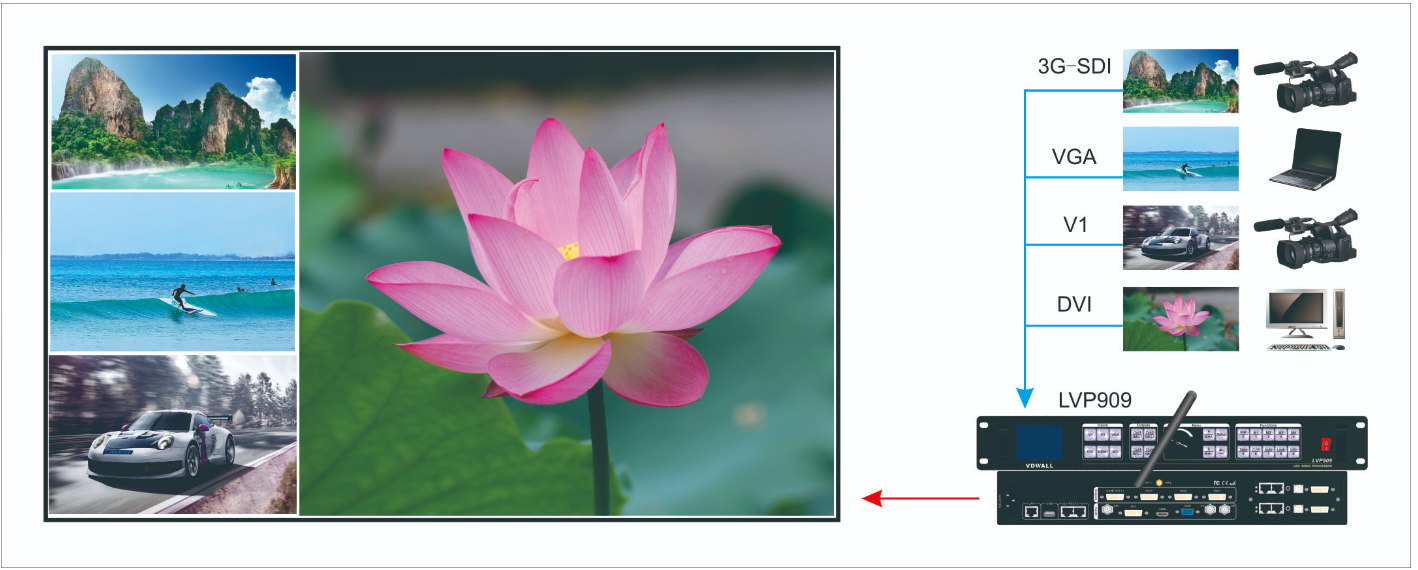
The conventional wired control mode is relatively complex, the operation is not convenient, and the wireless control makes the control of the LED display more convenient, so that the meeting is more efficient. The following will introduce several common wireless control mode.
First, RF wireless control
Working principle: one end of the RF module is connected to the control computer, and the other end is connected to the serial port of the control card. After the driver is installed, the computer generates a virtual serial port and sends data through it.
Second, WIFI wireless control
Working principle: By installing a wireless router or other wireless equipment, it Bridges with the user’s original wireless network to establish a wireless local area network. In this way, the network control card can be easily integrated into the wireless network to achieve wireless network control.
Third, GPRS wireless control
Working principle: The GPRS module is powered on for dial-up Internet access and connected to the data center server. The client software transmits information by accessing the server.
Fourth, 3G(WCDMA) wireless control
Working principle: The 3G module is connected to the data center server through the wireless network. Customers can log in directly to the globe.

8.Indoor LED display price
Fivactors that affect the price of indoor LED display
(1) IC – Driver IC
Indoor LED display driver board in the use of different models of driver IC. Constant current driver IC is the most used, the share of 90%. LED display refresh rate is 1920hz, 3840HZ, and 7680HZ. Etc. The higher the refresh rate, the higher the price of the constant current driver IC, and the higher the price of the corresponding display.
(2) LED light
At present, the common LED lamp bead brands in the world market are Kinglight, Nationstar, Liteon, Nichia, Lumileds and so on. As the most important raw materials of LED display, its impact on the price is the pixel, the size of the lamp and the brand. The quality of the lamp bead directly determines the service life of the indoor LED display screen and the final display effect.
We know that the higher the cost, the more stable the performance may be. Some are lower cost but have a large market due to their cost competitiveness. We can’t just pursue price without quality. We need to adopt different marketing methods according to the local market and find the balance between quality and price.
(3) LED switching power supply
LED switching power supply is mainly to convert high voltage into low voltage suitable for LED display. The international voltage is 110V or 220V, but the working voltage of each LED display module is 4.2V-5V, so we need a power supply that can convert the voltage from 110V or 220V to 5V voltage.
The quality of the switching power supply directly affects the stability of the indoor LED display. If the switching power supply of one of the displays is broken, it directly leads to the black screen of the entire LED display.
LEGIDATECH developed indoor LED display without black screen, because our switching power supply is specially designed. Although the cost and price of LED display will rise, this design greatly improves the stability of the display.
(4) LED display cabinet
This factor is mainly related to the complexity of the raw materials and production process of the LED display box.
Indoor LED display box generally uses iron, aluminum alloy, magnesium aluminum alloy, aluminum pressing shaft. The price of LED display box made of iron is the lowest.
(5) The indoor LED display control system is also to determine the level of the price
LEGIDATECH is the leadendor of ior LED display factory in China
(1) Production capacity
We have 8 mature SMT production lines, and most of our SMT machines are purchased from Samsung or Siemens. Our stock of finished products is very large. If the delivery time of your order is very short, I can generally deliver the goods to you in 5 days.
(2) 6000㎡ factory area
LEGIDATECH has a mature LED display factory and a professional workforce.
(3) Professional 88-hour aging test workshop
After the aging of the 44-hour module lamp, after we make the finished LED display, we also need to undergo 44 hours of aging. Ensure that we provide customers with qualified products.
(4) 3-year warranty and 5% spare parts
LEGIDATECH can guarantee your customer experience by offering a 2-3 year warranty and 5% spare parts!



